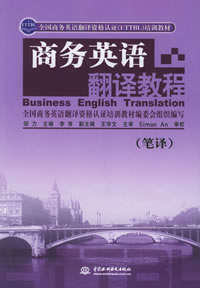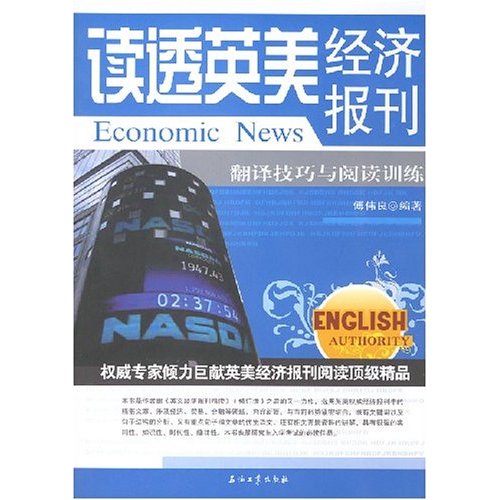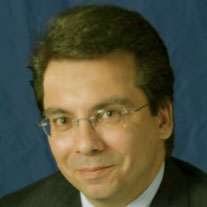你确定想成为翻译?一名年轻的翻译创业者的思考
作者:古龙 2009-07-04




语际翻译公司 转载请注明https://www.scientrans.com
∗本栏目部分文章内容来自互联网,部分已经过本站编辑和整理,如有版权事宜请联系Email/MSN jesczhao@hotmail.com
So You Want to be a Translator.
Reflections of a Fairly Young Translation Entrepreneur
I originally began translating when working as a secretary for a tourism firm. No prior experience, no knowledge of translation. A high school education and fluent knowledge in a few languages. That is what my employer thought sufficed for translation. I did what I thought I was supposed to do. Possibly thinking that I did it fairly well. It was way before I had established my personal quality control system or used proofreaders, and before I actually knew what translating was. I don’t think I would ever want to see any of those texts today, as I would probably be mortified. I get asked a lot about the profession. Each time I attempt an answer I come up with some new aspect. I have however, come up with a few pointers that may help one to decide whether the field is for them. On the other hand, if you got this far, you’re not doing too bad. There are several great articles for beginning translators in this section, so hopefully I am able to bring in something new.
Translators are writers. Contrary to popular belief, we are not machines. These days we actually need machines to help us do what we do. There are trained translators and untrained translators, some professional and some just plain crumby. There are those who feel that the only acceptable target language is the mother tongue, there are others who consider it okay to translate into their second (or even third) language. Whatever the case, translation is a creative process, and if writing is not something you enjoy doing, translation is probably not your thing. The final product reflects your writing ability at least as much as the original author’s.
Translation requires an understanding of others. When you read a text to be translated, you should have some kind of idea of who your target audience is going to be. There is a difference between the language used in a speech and the language used in an article for a scientific journal. The translator’s job is to understand this difference, regardless of whether the client is or isn’t aware of this. The work that we do multiplies the number of readers of the text at hand. We all know what it feels like to read a badly written text, obviously lacking dedication from the writer. As a translator, you take the text personally. Sometimes, quality goes above profit—like when you have to consult another translator or pay for professional proofreading—and you end up on losing more than you gain. Sure, it’s unfortunate, but at the end, you will recover and at least you will be able to rest assured that you did a good job (and it won’t come back and bite you on the behind). Now that’s what I call gallant.
Especially for the reason of rising quality expectations, I believe that specialization is going to be essential in the future of translation. As in so many other fields, the only way to differentiate oneself from all the others is to have your special niche, something you could be considered top in your field in, such as the mating habits of the manatee. The Internet with sites like TranslatorsCafé.com constitute the tools making it increasingly easy for clients to find just the translator they are looking for. Globalization along with the Internet has made all sorts of specialists accessible, even in the remotest areas on Earth.
A good translator is inquisitive and curious. He/she enjoys reading and keeping up with the politics of the day. For in order to be able to process all the various and sundry projects that are placed before us an awareness of what’s going on in the world is indispensable, no matter how good one’s translation techniques are. In this field, being a jack-of-all-trades really does help. A healthy knowledge of different areas always provides added value to the translator’s work.
My experience of translators is that they are social animals who enjoy maintaining and developing their language skills also by discussing and interacting. This also involves traveling, and not only for work assignments, but also for language maintenance. I can’t think of too many professions where an essential part of maintaining work ability involves such leisurely activities such as socializing and traveling. Generally translating as a freelancer provides a luxurious amount of freedom and flexibility that it almost makes one feel guilty. That is, if you can deal with lugging around suitcases weighed down with specialized literature and fat dictionaries much to the dismay of check-in counter workers. Sometimes, all you really need is a laptop, fast internet, and a cold refreshment.
&nbs
- 评论
- seme:文章内容文章内容文章内容文章内容文章内容文章内容文章内容文章内容文章内容 章内容文章内容文章内容文章内容文章内容
- seme:文章内容文章内容文章内容文章内容文章内容文章内容文章内容文章内容文章内容 章内容文章内容文章内容文章内容文章内容

- 谈翻译观念的嬗变与翻译技能的训练
2009-6-15 15:33:10 - 《高等学校英语专业英语教学大纲》中规定,大学生通过四年的在校学习,“能运用翻译的理论和技巧,将英美报刊上的文章以及文学原著译成汉语,或将我国报刊、杂志上的文章和一般文学作品译成英语……。译文要求忠实...
- 翻译与网络营销
2009-6-11 0:02:31 - Translation and Your International E-Commerce Strategy Most businesses realize that they ...
- 第四届IEEE生物信息与生…
2009-6-30 19:42:01 - 基本信息 主办单位: 四川大学,IEEE生物医学工程协会(EMBS) 承办单位 开始日期 2010/06/18 结束日期 截稿日期 2009/1...
- 第九届全国光电技术学术…
2009-6-30 19:35:58 - 基本信息主办单位: 中国宇航学会光电技术专业委员会承办单位 开始日期 2009/11/01结束日期 截稿日期 2009...
















